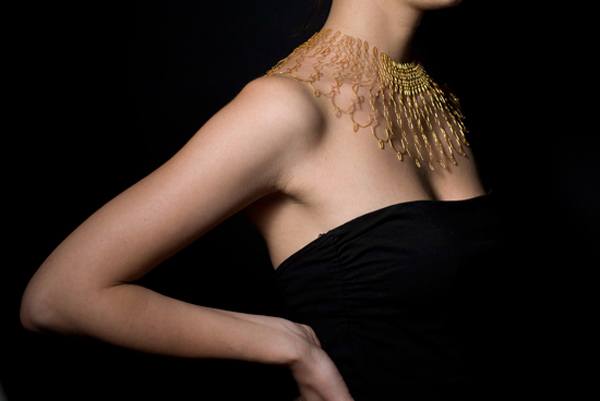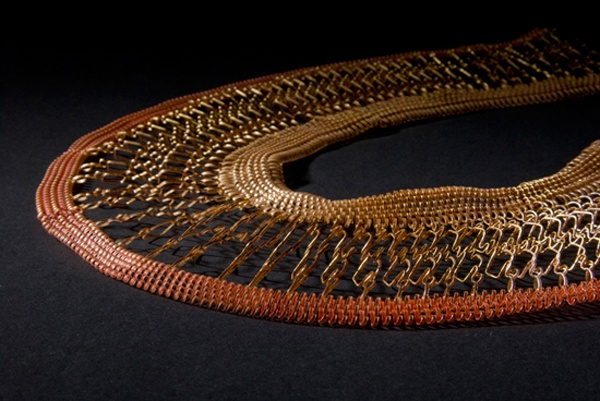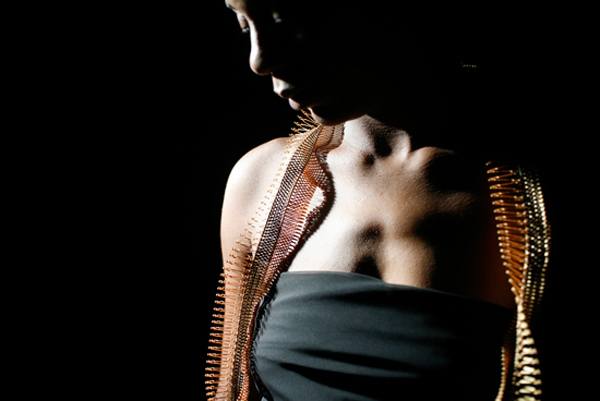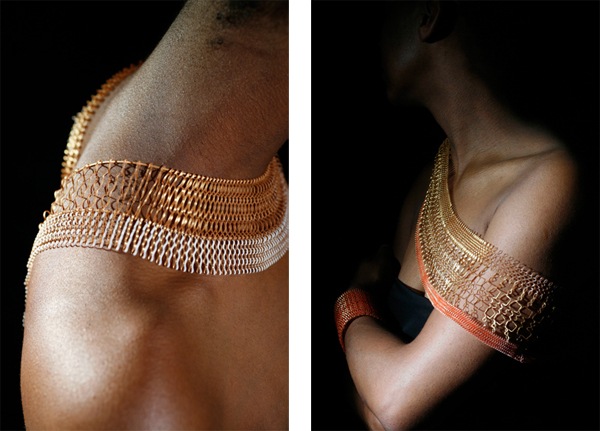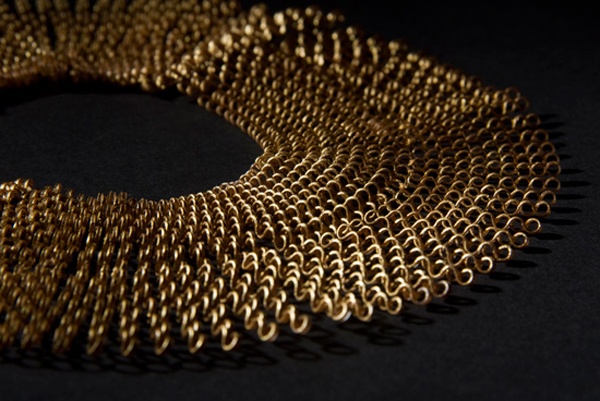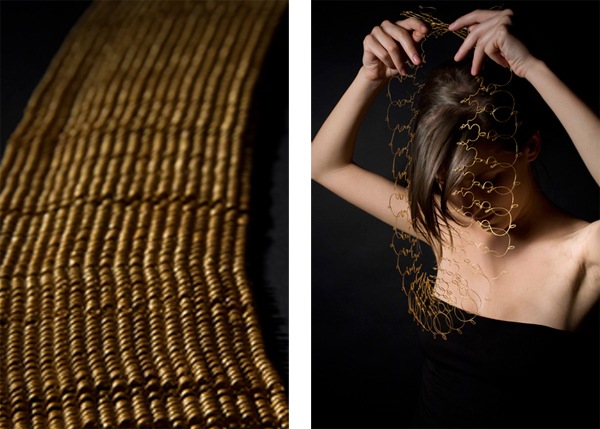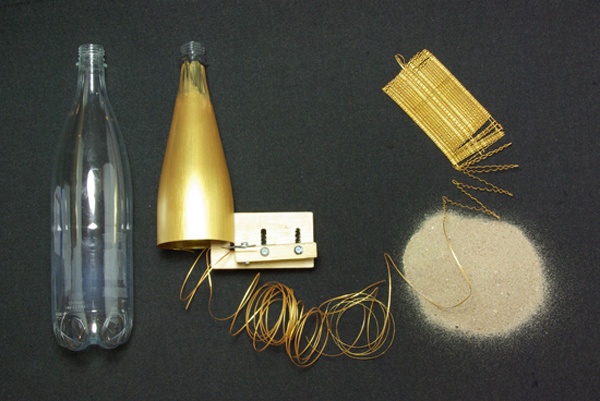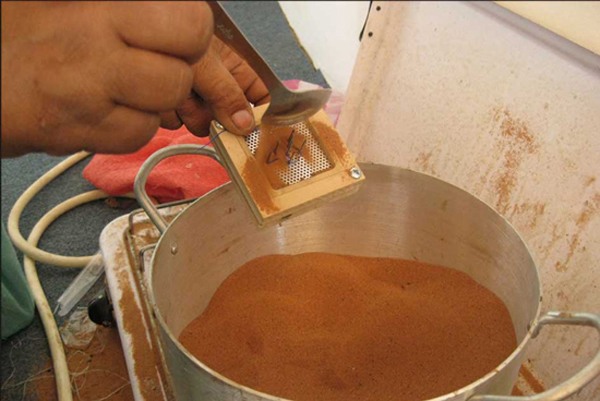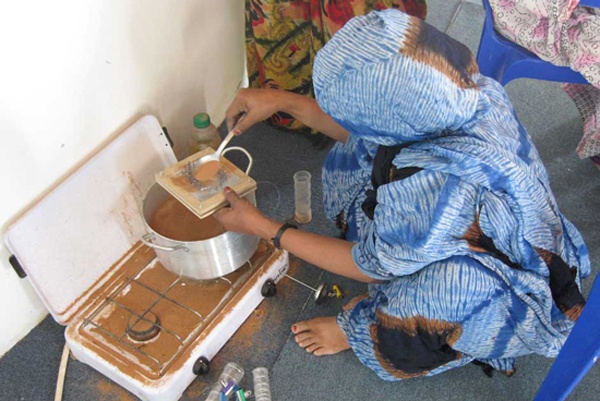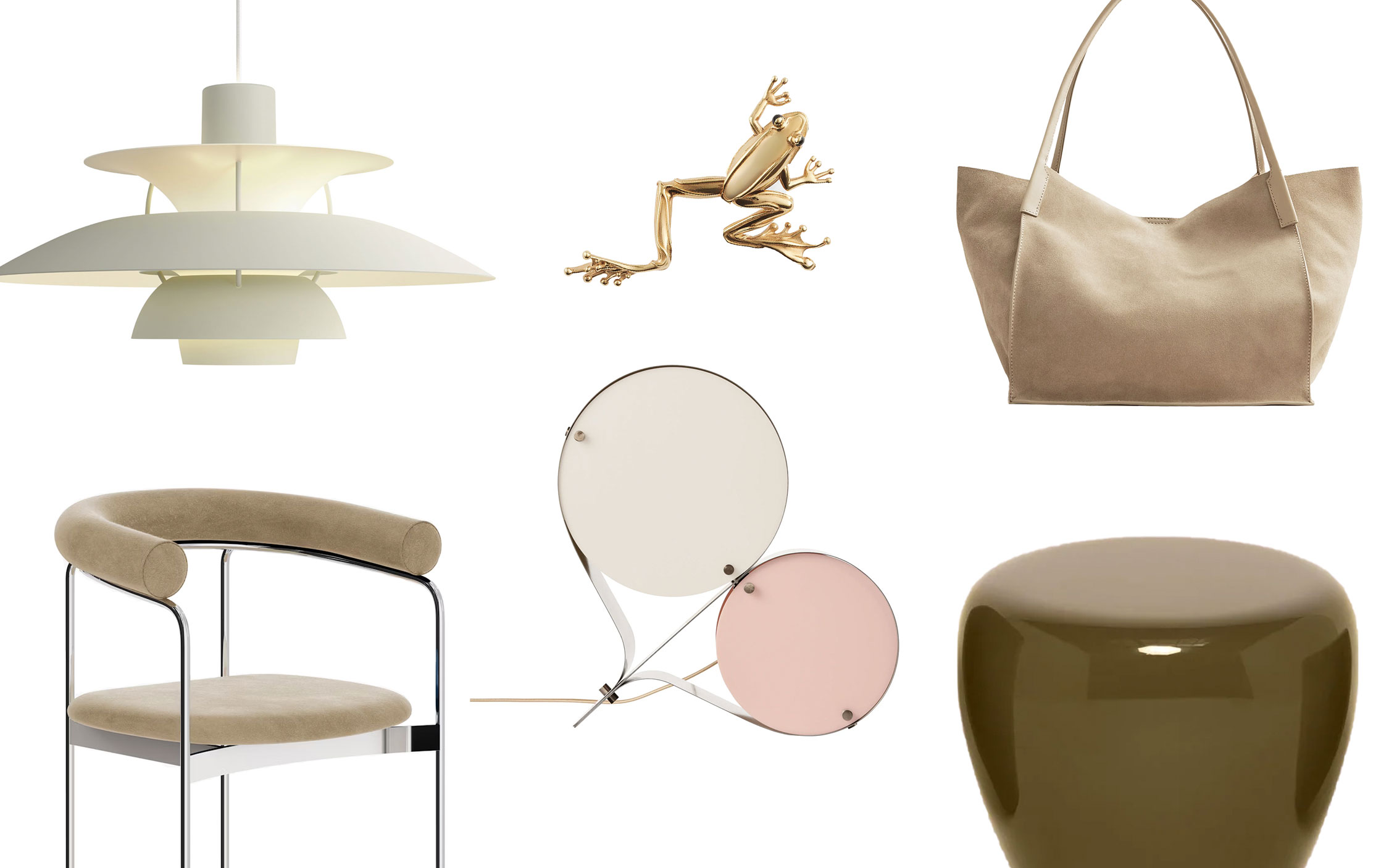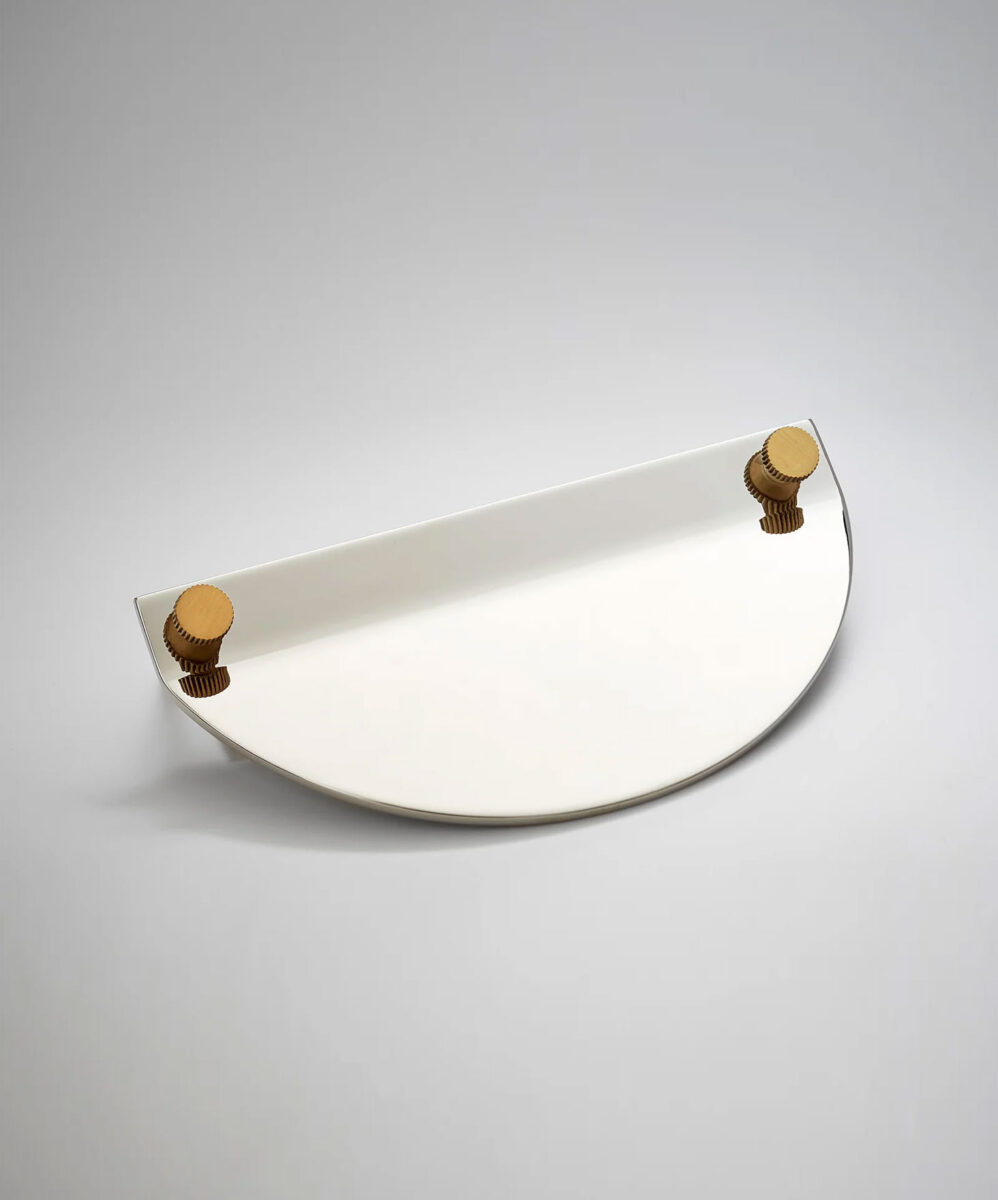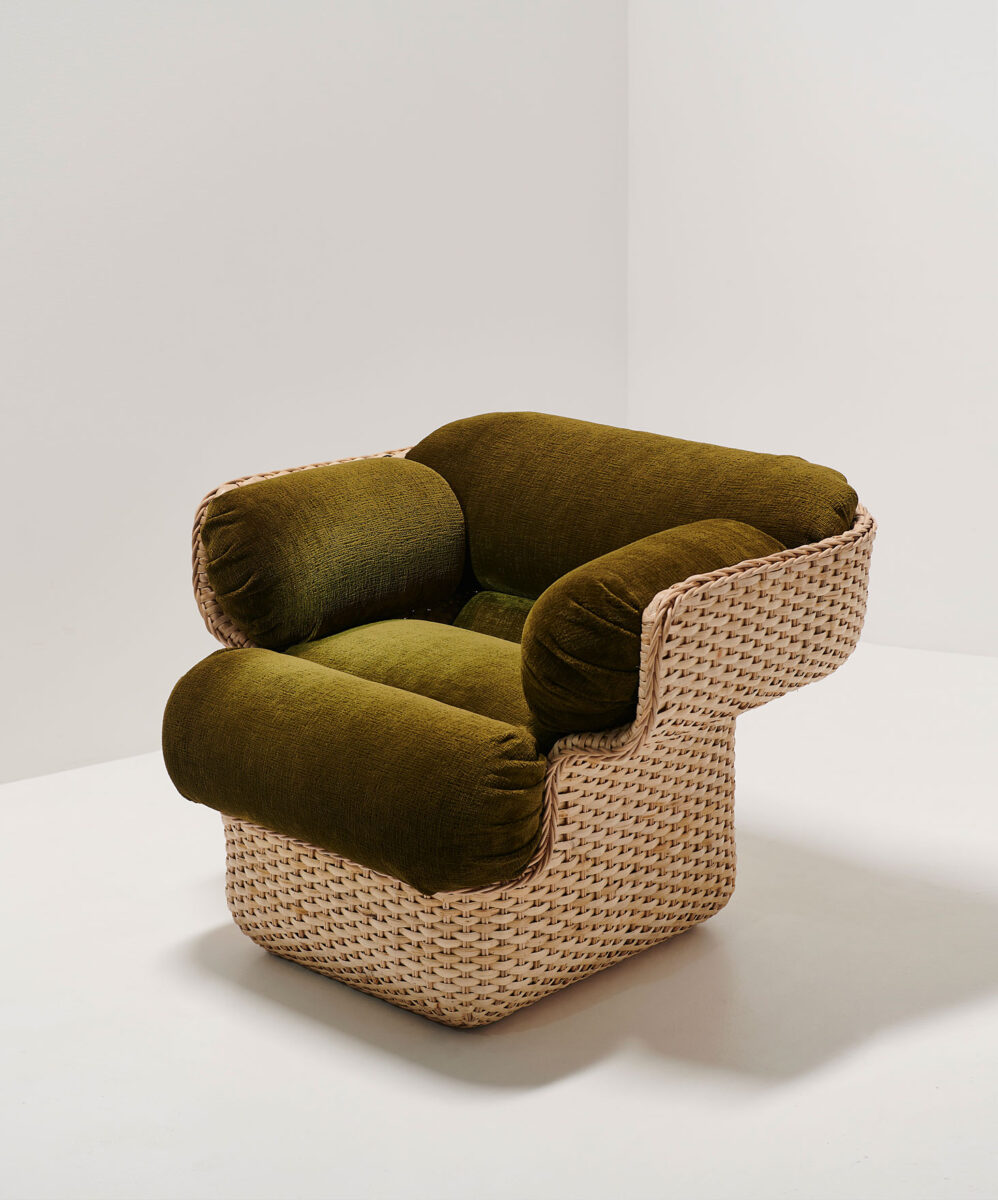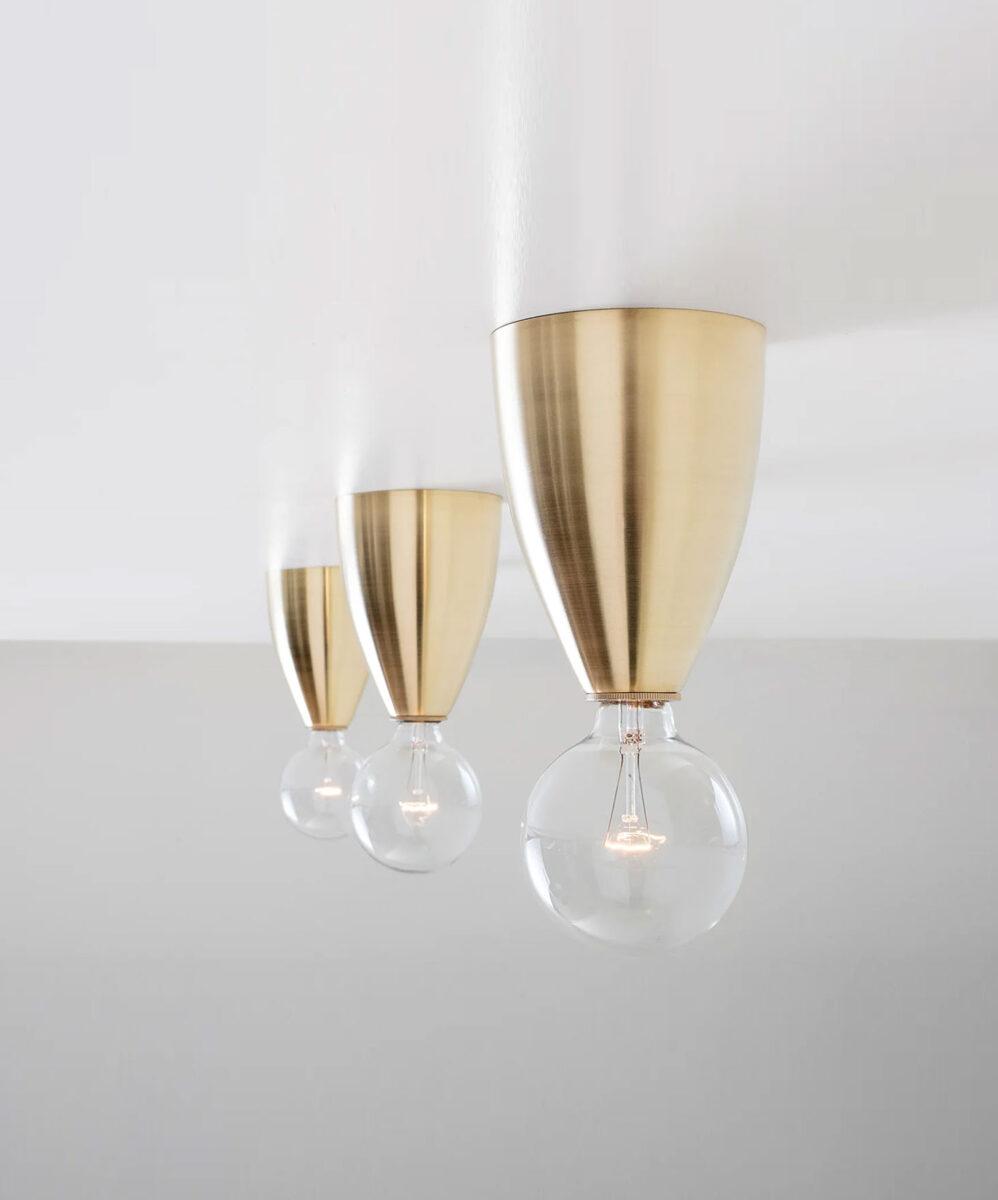Devised by designer and former Royal College of Arts student, Florie Salnot, Plastic Gold was a project implemented within the refugee camp of the Saharawi people in 2009 and 2010.
Since Morocco’s annexation of their Western Sahara land in 1975, the formerly nomadic Saharawi people have been living in exile in the most hostile desert in the world. Isolated, with little to no job opportunities and limited resources, these people have been dependent on tenuous aid for 38 years as they wait in hope for the return of their homeland.
For the purposes of this project, Florie devised a craft that would allow the Saharawi refugees to create sell-able art with the limited resources available to them. The end goal was to improve their quality of life and their sense of cultural pride through meaningful craft work as well as to empower them by creating a sustainable way of generating income and reducing dependence.
Sourcing locally available discarded plastic bottles, sand, paint and simple hand tools, Florie masterminded a method of jewelry making that would allow for individual creativity.
The Process: Found plastic bottles are fist painted then cut into thin strips with a cutting tool. These strips are then wound around strategically placed nails set within a nail board. This board is placed in hot sand, which effectively shrinks and remolds the plastic strip into new shapes which may then be combined in any variety of ways to form the finalized jewelry pieces.
The finished golden pieces shown above are a collaboration between three of the most skilled Saharawi craftswomen and Florie. The results are a beautiful example of how the pressures of even the most difficult circumstances can yield treasure worth far more than the sum of its parts.
The Plastic Gold program is slated to be up and running by the end of this year. In the meantime, you may contact Florie directly if you are interested in purchasing a Plastic Gold piece. In addition, you can learn more about the Saharawi people, their culture and ways to get involved via the UK human rights charity Sandblast.
Photos via floriesalnot.com, Video via YouTube.


